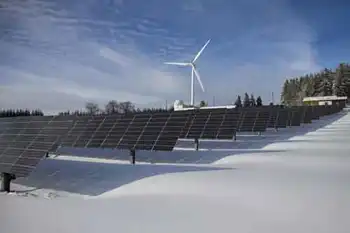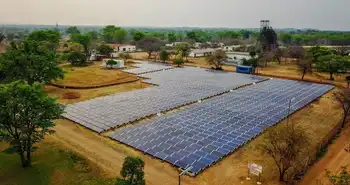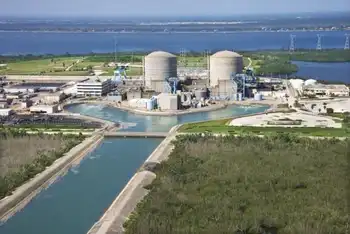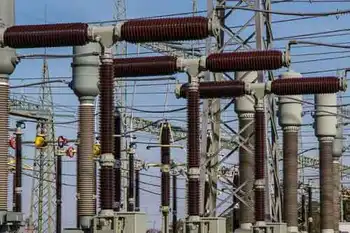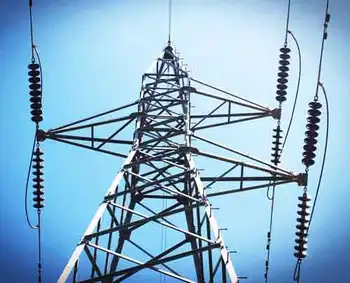BC Hydro Grid Modernization accelerates clean energy and electrification, upgrading transmission lines, substations, and hydro dams to deliver renewable power for EVs and heat pumps, strengthen grid reliability, and enable industrial decarbonization in British Columbia.
Key Points
A $36B, 10-year plan to expand and upgrade B.C.'s clean grid for electrification, reliability, and industrial growth.
✅ $36B for lines, substations, and hydro dam upgrades
✅ Enables EV charging, heat pumps, and smart demand response
✅ Prioritizes industrial electrification and Indigenous partnerships
In a significant move towards a clean energy transition, British Columbia has announced a substantial $36-billion investment to enlarge and upgrade its electricity grid over the next ten years. The announcement last Tuesday from BC Hydro indicates a substantial 50 percent increase from its prior capital plan. A major portion of this investment is directed towards new consumer connections and improving current infrastructure, including substations, transmission lines, and hydro dams for more efficient power generation.
The catalyst behind this major investment is the escalating demand for clean energy across residential, commercial, and industrial sectors in British Columbia. Projections show a 15 percent rise in electricity demand by 2030. According to the Canadian Climate Institute's models, achieving Canada’s climate goals will require extensive electrification across various sectors, raising questions about a net-zero grid by 2050 nationwide.
BC Hydro is planning substantial upgrades to the electrical grid to meet the needs of a growing population, decreasing industry carbon emissions, and the shift towards clean technology. This is vital, especially as the province works towards improving housing affordability and as households face escalating costs from the impacts of climate change and increasing exposure to harsh weather events. Affordable, reliable power and access to clean technologies such as electric vehicles and heat pumps are becoming increasingly important for households.
British Columbia is witnessing a significant shift from fossil fuels to clean electricity in powering homes, vehicles, and workplaces. Electric vehicle usage in B.C. has increased twentyfold in the past six years. Last year, one in every five new light-duty passenger vehicles sold in B.C. was electric – the highest rate in Canada. Additionally, over 200,000 B.C. homes are now equipped with heat pumps, indicating a growing preference for the province’s 98 percent renewable electricity.
The investment also targets reducing industrial emissions and attracting industrial investment. For instance, the demand for transmission along the North Coastline, from Prince George to Terrace, is expected to double this decade, especially from sectors like mining. Mining companies are increasingly looking for locations with access to clean power to reduce their carbon footprint.
This grid enhancement plan in B.C. is reflective of similar initiatives in provinces like Quebec and the legacy of Manitoba hydro history in building provincial systems. Hydro-Québec announced a substantial $155 to $185 billion investment in its 2035 Action Plan last year, aimed at supporting decarbonization and economic growth. By 2050, Hydro-Québec predicts a doubling of electricity demand in the province.
Both utilities’ strategies focus on constructing new facilities and enhancing existing assets, like upgrading dams and transmission lines. Hydro-Québec, for instance, includes energy efficiency goals in its plan to double customer savings and potentially save over 3,500 megawatts of power.
However, with this level of investment, provinces need to engage in dialogue about priorities and the optimal use of clean electricity resources, with concepts like macrogrids offering potential benefits. Quebec, for instance, has shifted from a first-come, first-served basis to a strategic review process for significant new industrial power requests.
B.C. is also moving towards strategic prioritization in its energy strategy, evident in its recent moratorium on new connections for virtual currency mining due to their high energy consumption.
Indigenous partnership and leadership are also key in this massive grid expansion. B.C.’s forthcoming Call for Power and Quebec’s financial partnerships with Indigenous communities indicate a commitment to collaborative approaches. British Columbia has also allocated $140 million to support Indigenous-led power projects.
Regarding the rest of Canada, electricity planning varies in provinces with deregulated markets like Ontario and Alberta. However, these provinces are adapting too, and the federal government has funded an Atlantic grid study to improve regional planning efforts. Ontario, for example, has provided clear guidance to its system operator, mirroring the ambition in B.C. and Quebec.
Utilities are rapidly working to not only expand and modernize energy grids but also to make them more resilient, affordable, and smarter, as demonstrated by recent California grid upgrades funding announcements across the sector. Hydro-Québec focuses on grid reliability and affordability, while B.C. experiments with smart-grid technologies.
Both Ontario and B.C. have programs encouraging consumers to reduce consumption in real-time, demonstrating the potential of demand-side management. A recent instance in Alberta showed how customer participation could prevent rolling blackouts by reducing demand by 150 megawatts.
This is a crucial time for all Canadian provinces to develop larger, smarter energy grids, including a coordinated western Canadian electricity grid approach for a sustainable future. Utilities are making significant strides towards this goal.
Related News






